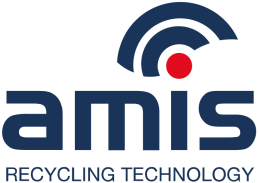A constantly increasing demand for high performance polymers and the worldwide plans to use valuable resources more efficiently as well as reducing the volume of plastic contaminants in the environment – this are the challenges the recycling technologies must comply with. First stepstone achieving those requirements is to prepare the material to be recycled as well as humanly possible.
Recycling post-consumer film, such as plastic bags and packaging, is an important step in reducing plastic waste and its impact on the environment.
Collection, starting at the remittent, continuing in the household, ending in throughout advanced sorting technologies to separate plastic film from other materials is essential for the recycling process.
The stages
- Shredding: Shredding is an essential step in the recycling process . Sorted film waste, in baled or loose form is fed into the machine with loaders or a conveyor belt. The output is consistent, the cut precise and 90% of the output will be smaller than 60 mm with an output of up to 5 metric tons per hour.
- Prewashing: Pre-shredded plastics are heavily contaminated containing diverse foreign materials. The RAFTER® well-engineered technology effectively separates abrasive matter and prepares the material for all following processes.
- Plastics separation: Categorising plastics according to their specific weight. This step is executed with Lindner Washtech’s GRAVITOR®, a machine that combines state-of-the-art features with the tried-and-tested sink-float method. In this process, not only is it important that the output material is homogeneous, but the machine’s construction must also be compact and efficient.
- Friction washing: The Lindner Washtech machines clean even the smallest particles very effectively. The machine size can be adjusted to the customer’s specific throughput requirements, achieving rates of up to 4 metric tons per hour. The machine’s screens and paddles are also customisable and replacable. The Hot-Wash can be added-in additionally for extremely tough contaminants.
- Drying: The clean material is carried into the mechanical dryers, where the plastic flakes are dried in controlled conditions. Using centrifugal forces the material is further cleaned .
Finally, the material is thermally dried and can subsequently be transferred for extrusion.
End product characteristics
- Particle size: < 50 mm
- Moisture content: 5-8%
- Materials: PP, PE, PE-HD, PE-LD, PE-LLD, etc.











